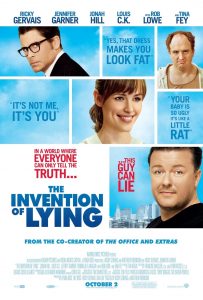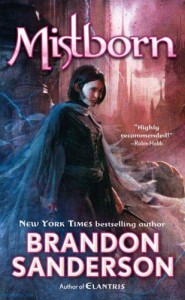 I have been vaguely aware of A Night in the Lonesome October for ten years or better, but it’s really hard to find a copy, so I’ve never read it. However, I finally did find one earlier this year. Which I suppose is pretty obvious, as, review! I have always been told, during the span of said vague awareness, that the appropriate way to read the book is day by day throughout October, to coincide with the chapters which are each their own day. And so I was gonna do that this year, but then on top of it, some people I know decided to do a reading-club-style daily read at the same time, so I also got to discuss as I went. This does not, per se, take away from my review thoughts, because the talks were mostly about the plot revelations and not much at all about theme. Still, it will turn out to have an influence nevertheless.
I have been vaguely aware of A Night in the Lonesome October for ten years or better, but it’s really hard to find a copy, so I’ve never read it. However, I finally did find one earlier this year. Which I suppose is pretty obvious, as, review! I have always been told, during the span of said vague awareness, that the appropriate way to read the book is day by day throughout October, to coincide with the chapters which are each their own day. And so I was gonna do that this year, but then on top of it, some people I know decided to do a reading-club-style daily read at the same time, so I also got to discuss as I went. This does not, per se, take away from my review thoughts, because the talks were mostly about the plot revelations and not much at all about theme. Still, it will turn out to have an influence nevertheless.
Because mostly what I learned is that it’s the kind of book about which the less you know going in, the better. If I had my druthers[1], I would not even have read the jacket text explaining the setting and plot outline. Which, well, makes it tricky to give much of a proper review of what’s going on, is my point. In short, a group of animals (including the book’s narrator, a dog named Snuff) and the humans they are attached to have gathered in the English countryside in October in order to perform an apparently supernatural task. And they are not all on the same side. And so the book gradually unfolds the nature of the task while exploring the motives and, of course, actions of the participants. I know this sounds boring, but I can guarantee that the majority of characters are compelling, and the plot is old-fashioned October horror. And probably that you’ll be happy not knowing more.
[1] Real word? You decide!
 I know that October isn’t really the right time of year to watch comedies. I mean, it’s really a pretty straightforward process. October and February are for horror, November is for family movies and James Bond, December is for OMG-Drama, spring (and September? I’m not entirely sure where September fits) are for comedy, summer is for action blockbusters, and January is for movies that honestly shouldn’t ought to have been released. But, okay, Hollywood doesn’t always do the right thing, and also sometimes I am in the company of people who have an aversion to this or that type of movie. In this instance, despite there being a couple-few horror movies left for me to catch up on for the month, I ended up seeing
I know that October isn’t really the right time of year to watch comedies. I mean, it’s really a pretty straightforward process. October and February are for horror, November is for family movies and James Bond, December is for OMG-Drama, spring (and September? I’m not entirely sure where September fits) are for comedy, summer is for action blockbusters, and January is for movies that honestly shouldn’t ought to have been released. But, okay, Hollywood doesn’t always do the right thing, and also sometimes I am in the company of people who have an aversion to this or that type of movie. In this instance, despite there being a couple-few horror movies left for me to catch up on for the month, I ended up seeing  So, okay, Woody Harrelson versus the zombiepocalypse. There’s no chance I was not going to love this movie. Calibrate accordingly.
So, okay, Woody Harrelson versus the zombiepocalypse. There’s no chance I was not going to love this movie. Calibrate accordingly.

 On Thursday, I had never heard of
On Thursday, I had never heard of